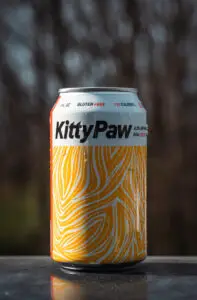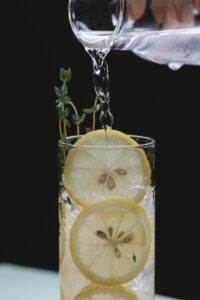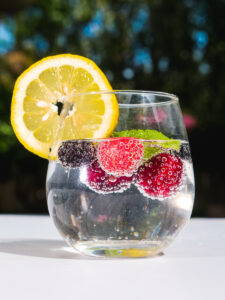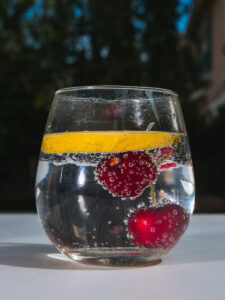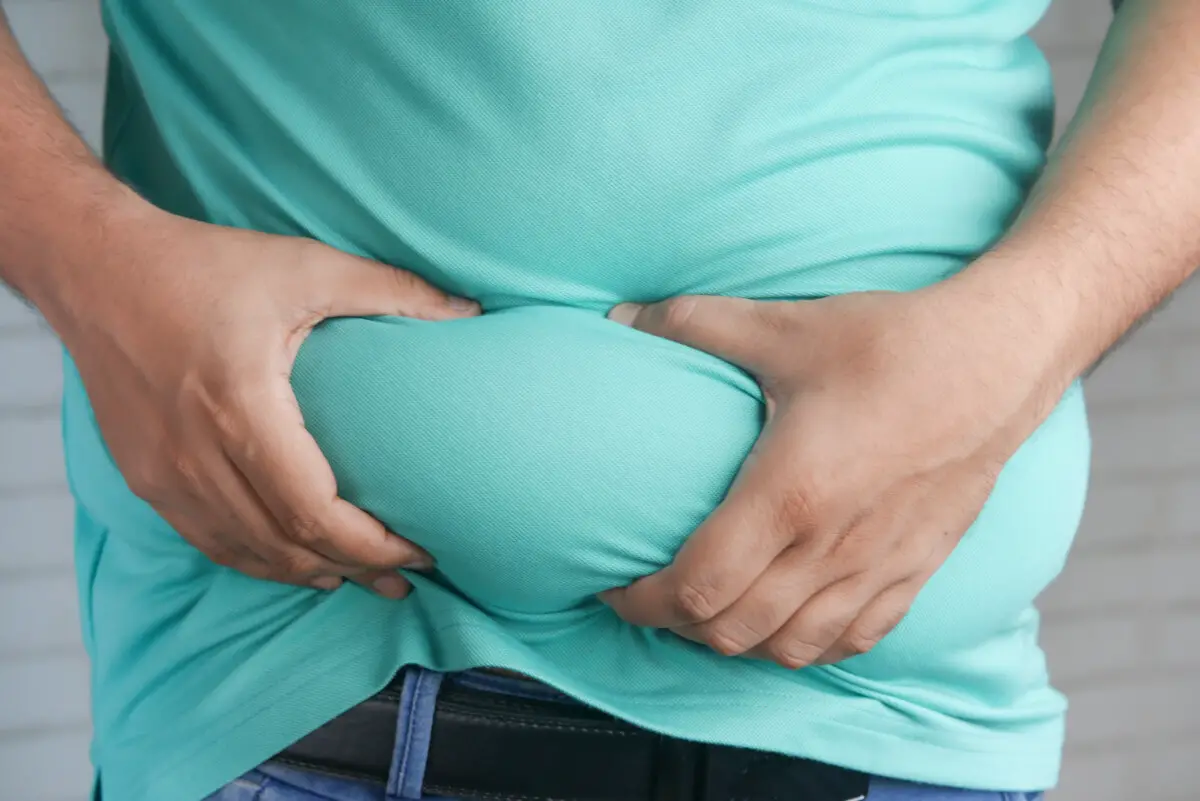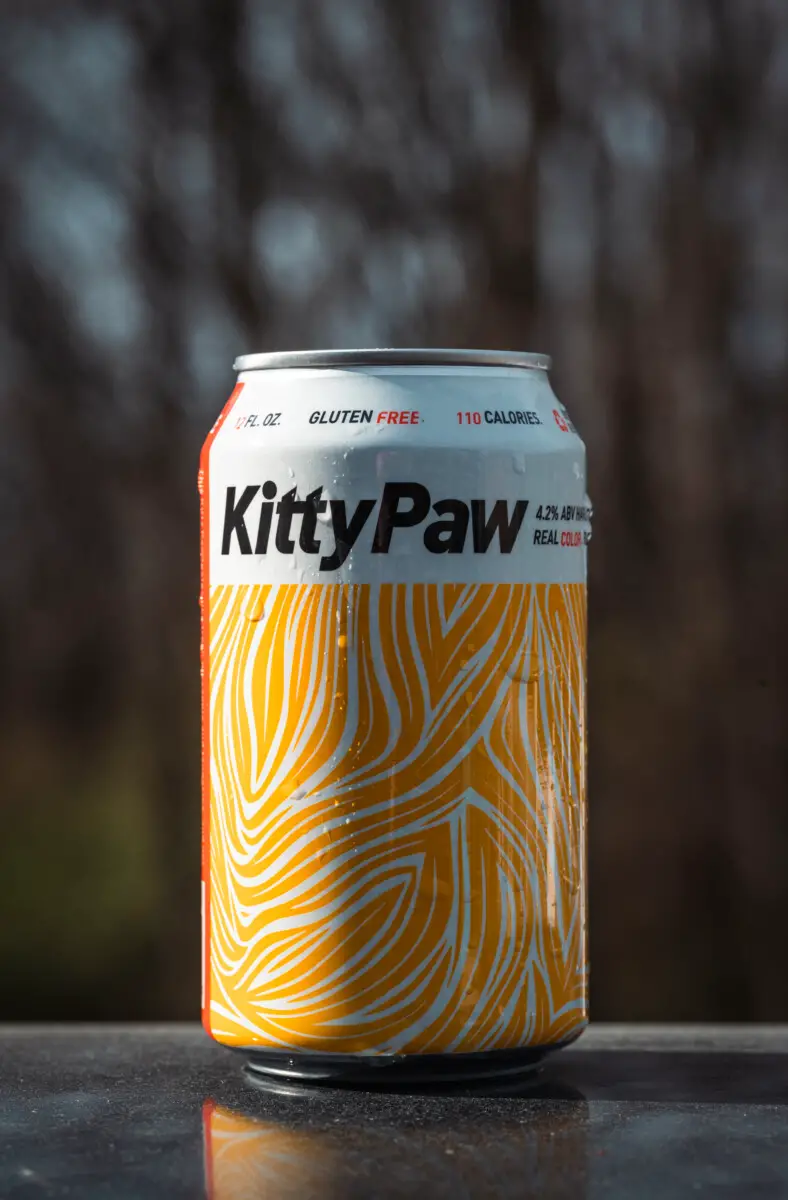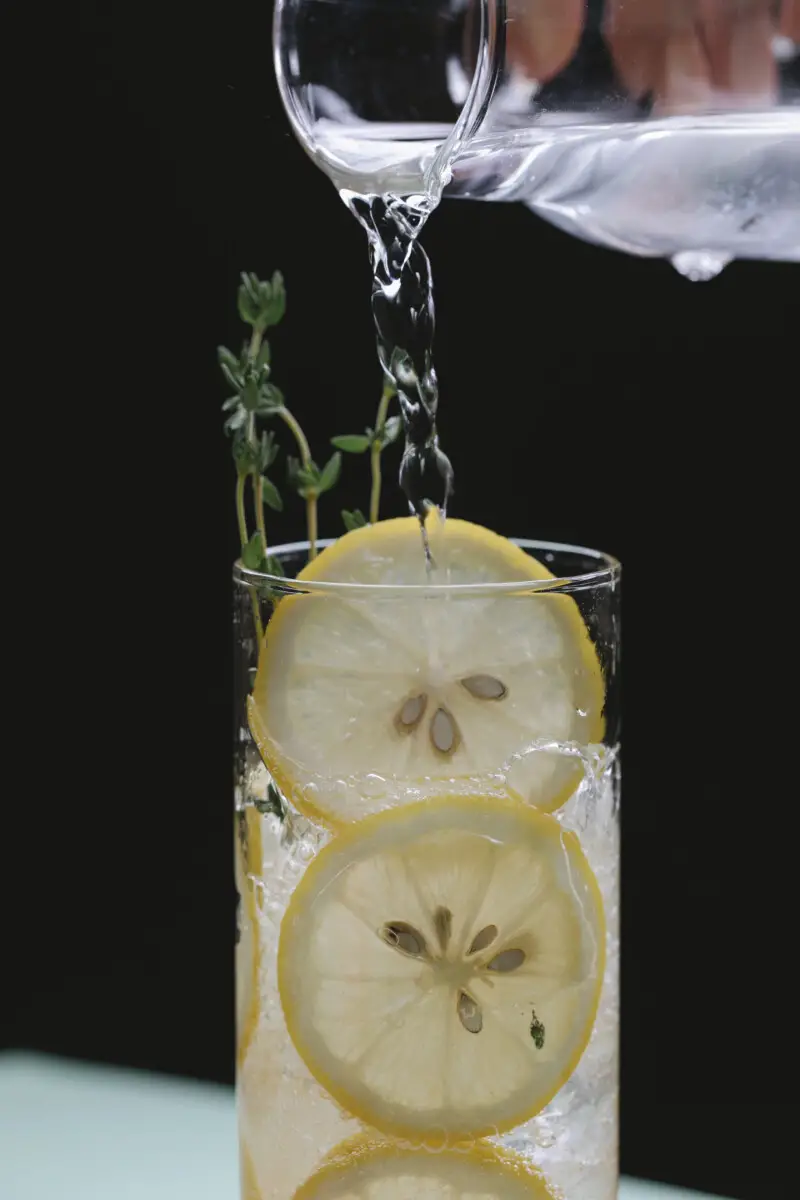Amazon Affiliate Disclaimer
As an affiliate, we earn from qualifying purchases. We get commissions for purchases made through links in this post.
Sparkling water has become a popular go-to drink for people who struggle to drink regular water but want to stay hydrated. It can be a great alternative for someone who’s trying to manage your sugar intake but still wants the illusion of drinking soda. It’s a great replacement drink for the traditional sugary sodas and other fruit juices.
Sparkling water has many names– soda water, carbonated water, club soda, or seltzer– but whatever it’s called, it’s just plain water that contains dissolved CO2, resulting in a fizzy drink. This process, carbonation, can either be a naturally-occurring phenomenon or manufactured artificially.
Since it’s only carbonated water, sparkling water– regardless of brand or manufacturer– usually only contains 55 mg of sodium and nothing else. No carbs, no calories, no cholesterol, and most importantly, no sugar. So, if it’s plain carbonated water, then why doesn’t it taste plain?
History
Carbonated beverages are not a modern invention. The fermentation process when making beer and champagne results in the creation of a fizzy drink. In fact, the first sparkling wine created dates back to 1662 when an English scientist experimented by adding sugar and molasses during fermentation.
This discovery has led other scientists curious about what happens to water if it’s carbonated. By 1772, a certain Joseph Priestly discovered a technique on how to infuse carbon dioxide into water. He did so by dripping sulphuric acid onto chalk on top of a suspended beer vat full of water. He reported the procedure as “impregnating water with fixed air”.
But this might come as a surprise to some people, but sparkling water isn’t only made artificially. It’s also a naturally-occurring phenomenon. The natural geological processes that take place which result in carbonated water are when volcanic activity enriches the water with minerals, and the hot magma produces gasses that dissolve in springs of natural water. These kinds of naturally carbonated waters are highly sought after for their supposed healing properties.
These days, modern ways of creating sparkling water have become simpler, allowing for it to be mass-produced. For artificially carbonated water, like any other manufactured carbonated drinks, pressurized carbon dioxide is infused within the water during the production process, forming bubbles. The water now starts off supersaturated with carbon dioxide, resulting in the gas being pressurized, which makes it want to escape from the water. When the water is bottled, the extra space above the drink is filled with more CO2 with a pressure above the standard atmospheric pressure. This is why the CO2 previously infused in the water stays within the fluid.
The result of mass-produced and widely available sparkling water has fundamentally changed the way people drank alcohol. In the olden times, mixing drinks to form other drinks was unheard of. These days, people can mix liqueurs with sparkling water or dilute spirits with it to make for a more socially acceptable drink.
How Is It Made?
The natural geological processes that take place which result in carbonated water are when volcanic activity enriches the water with minerals, and the hot magma produces gasses that dissolve in springs of natural water. These kinds of naturally carbonated waters are highly sought after for their supposed healing properties.
For artificially carbonated water, like any other manufactured carbonated drinks, pressurized carbon dioxide is infused within the water during the production process, forming bubbles. It happens the same way as dissolving sugar and salt into the water.
In general, it is created when gas pressure is raised and temperature is reduced, causing carbon dioxide to dissolve in the liquid. When this happens, carbonic acid is produced. This is what gives water effervescence, resulting in a far more pleasing drinking experience.
What Does It Taste Like?
If you’re someone who never tasted sparkling water, then you may be curious about what it tastes like. It varies from person to person, some love it, some tolerate it, and there are a few others who abhor it. And it all depends on the acidity of your tongue.
Whether you’re a fan or not, most can agree that sparkling water tastes somewhat sour and acidic and gives your mouth a slight burning sensation. Almost like diluted lime juice. Now, this doesn’t sound as bad, but for people who detest drinking sour beverages, then it may taste gross for them.
Is sparkling water good for you?
There is a long-standing debate about whether sparkling water is good or bad for the health. Although many experts agree that it is relatively healthier as compared to other canned sodas, there are still possible risks that come with it.
In general, an 8oz serving of sparkling water, regardless of brand or manufacturer, usually only contains 55 mg of sodium and nothing else. No carbs, no calories, no cholesterol, and most importantly, no sugar. This is why it’s a go-to drink for people who want to drink soda but not risk its adverse effects on their health.
Our bodies don’t know the difference if we’re hungry or just thirsty, so chugging sparkling water gives the illusion of fullness to people who feel constantly hungry, while also providing hydration. Sparkling water is just as hydrating as normal water. Some studies also found that sparkling water helps relieve constipation by improving digestion. It does so by improving your ability to swallow.
The most healthy type of sparkling water is the plain type. So you should pay attention to the type of sparkling water you’re drinking. Make sure to choose the ones without any flavoring and other sweeteners as these additives may cause tooth decay, as with anything that is high in sugar.
Final Thoughts
The reason why most sparkling water tastes gross is because it’s a bit sour– which gives off a weird sensation when drinking liquid. Our tongues contain sour-cell enzymes responsible for maintaining the pH level of our taste buds, but it also happens that the enzyme converts carbon dioxide in the sparkling water into protons, resulting in a sour aftertaste.
Of course, mineral levels also contribute to the taste of sparkling water. While some makes for a sour drink, adding different kinds of minerals, like sodium, also makes sparkling water salty. These are usually sparkling mineral water.
Related Topics:
What Is Sparkling Water And What Does it Do?
What Does Sparkling Water Taste Like?
Can You Drink Sparkling Water with Invisalign?
Read also:
- Embracing the Essence: Discovering Natural Mineral Water Sources

- Nourishing the Soul: Mineral Water for Enhanced Digestive Wellness

- Sparkling Mineral Water: Effervescence for the Soul
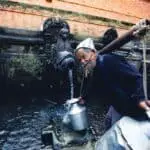
- Revitalize Your Day: 7 Tips for a Refreshing Hydration Experience with Mineral Water

- Mineral Water Benefits: Exploring the Health Benefits of Drinking Mineral Water

- How to Choose the Healthy Drinks with Mineral Water: Refreshing and Nourishing Options

Please be careful and use at your own risk
None of the authors, contributors, administrators, or anyone else connected with Water Exotic, in any way whatsoever, can be responsible for your use of the information contained in or linked from these web pages.



